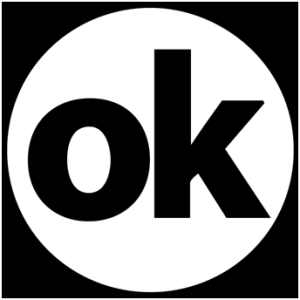 When did it stop being OK to be OK? Now it’s great, wonderful, amazing, stellar, and even epic. Epic. Really? What does epic even mean, anyway? Heroic and monumental are some of the definitions from standard dictionaries. The Odyssey is a classic example. The Urban Dictionary defines it as “the most overused word ever, next to fail.” Overused is exactly my point—for all these words, except OK.
When did it stop being OK to be OK? Now it’s great, wonderful, amazing, stellar, and even epic. Epic. Really? What does epic even mean, anyway? Heroic and monumental are some of the definitions from standard dictionaries. The Odyssey is a classic example. The Urban Dictionary defines it as “the most overused word ever, next to fail.” Overused is exactly my point—for all these words, except OK.
My daughter skipped and twirled across the lawn and did a cartwheel at the end. “Ta da!” She said. “Wasn’t that amazing?” She asked, beaming ear-to-ear. I had to be honest with her. “That was cool, but I wouldn’t call it amazing.” Do you think I’m a bad parent? I think it’s better to keep it real than to puff her up to believe she’s bigger than life.
It gets dizzying and meaningless when everything is awesome. People become numb and turn to drugs to keep the buzz from wearing off and to keep reality from creeping in. The stress of having to constantly outdo oneself and others leads people to engage in risky behaviors, both in youth and adults.
Let’s face it; most of us really are OK at most things. We may excel at something, but, compared to the rest of the humans on earth, we’re in the middle of the pack. And that’s OK! It’s OK to aspire to have a middle class life. We don’t need to try to be the best or to make millions. Really, it’s OK to have a solid job and have a decent life. Maybe get married, maybe have a family. That’s OK too. And it’s OK not to.
 Look around you. Most of the people around you are OK. Yes, there are a very rare few in the media who have mansions and insanely lavish lifestyles, but most people don’t. Not to worry. Research shows that having more money doesn’t make you happier, once you have enough to cover the basics. It’s interesting, because most parents say their most important wish for their children is for them to be happy. Voila. You don’t need to pressure them to be the best. It’s OK to be OK.
Look around you. Most of the people around you are OK. Yes, there are a very rare few in the media who have mansions and insanely lavish lifestyles, but most people don’t. Not to worry. Research shows that having more money doesn’t make you happier, once you have enough to cover the basics. It’s interesting, because most parents say their most important wish for their children is for them to be happy. Voila. You don’t need to pressure them to be the best. It’s OK to be OK.

